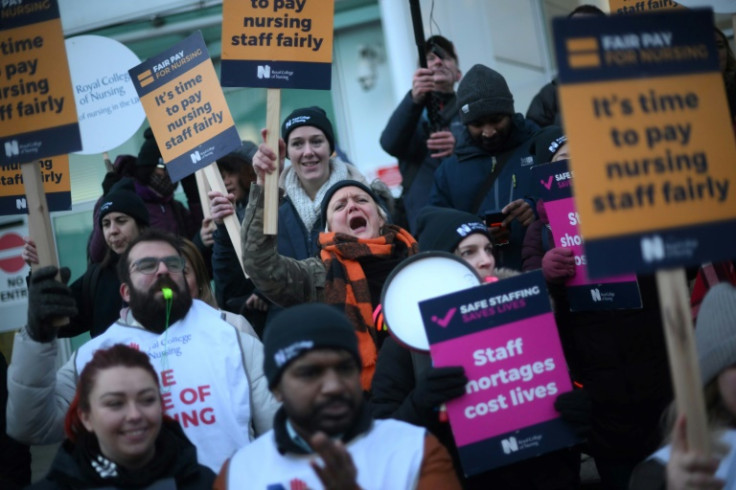NHS Strikes Continue Amid Plans For A Six Day Walkout In January
While the government's wage increase was accepted earlier this year, NHS employees have planned to intensify the strike actions across the UK.

The NHS is the UK's most treasured institution. While the public healthcare system is complex, surveys have found that British people are most proud of the NHS – overtaking that of the Armed Forces and the Royal family.
So far this year, there have been waves of strike actions across the UK. The majority of the industrial actions have been held by union workers, amongst employees in the transport, education and healthcare sectors.
In the wake of the weekly 'clap for carers' event that would take place on a Thursday evening during the COVID-19 pandemic, NHS staff have been calling on the government for a string of new labour deals.
The GMC's workforce report published in 2022, noted: "Since mid-2021, we have seen a marked increase in those leaving UK practice – at the time of writing this report, this increase broadly balances out the pandemic-related dip, so it is not yet possible to say whether these increases are related or are a new trend of higher leaving rates."
The industrial action has affected more than one million hospital appointments, according to an NHS report.
"We have now seen over a year of industrial action across the NHS," the institution said.
According to data discovered by Johnnie Kallas, the Project Director of the ILR Labour Action Tracker, roughly 453,000 NHS employees have appeared in the series of strikes in 2023.
"This is a pretty considerable uptick relative to the rest of the 21st century," Kallas explained.
As the healthcare workers have won deals with the government that implement a pay increase, Kallas noted how "strikes can often be contagious".
Earlier this year, the government submitted to the series of mass walkouts and offered a slight pay increase. The wage rise was followed up by a one-off bonus that allegedly symbolised the government's appreciation for NHS staff.
While the small increase in pay was accepted, several healthcare employees have continued to strike for better working conditions and wages.
Several more strikes are set to take place throughout December and January next year.
Kallas, who is also a PhD candidate at Cornell University's School of Industrial and Labour Relations, also found that, as of October this year, there have already been 312 NHS walkouts.
Hospitals across the UK are becoming increasingly overcrowded and understaffed as more than 169,500 NHS employees left the service in 2022.
The staff who handed in their resignations included doctors, nurses, technical staff, receptionists, ambulance staff, managers and support workers.
According to recent data published by the NHS, in March 2023, there were around 8,500 full-time vacancies in the public health service across England alone.
The British Medical Association (BMA) and the Hospital Consultants and Specialists Association (HCSA) have since announced that a group of junior doctors and dental trainees will be taking part in a 72-hour strike action.
The strike action will run between 7:00am on Wednesday 20 December and 7:00am on Saturday 23 December.
In advance, the NHS has reported that the walkout will "cause a significant reduction in elective activity and this may mean some appointments and procedures may need to be rescheduled".
In January of next year, the BMA also noted that junior doctors would be leaving their job posts in a record-long strike action.
The healthcare professionals will be striking for six days from January 3, as part of a dispute between junior doctors and the government.
"Junior doctors make up around half of all doctors in the NHS," the NHS said in a statement.
The doctors "are qualified doctors who have anywhere up to eight years' experience working as a hospital doctor, depending on their speciality, or up to three years in general practice", the NHS statement added.
© Copyright IBTimes 2025. All rights reserved.





















